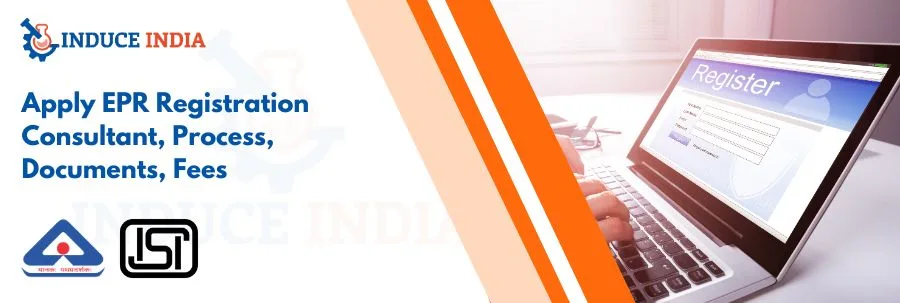Extended Producer Responsibility (EPR) is the most important concept for waste management, especially plastic waste, in the new wave of environmental consciousness and awareness dominating all aspects of business operations today. In keeping with the wider implications of EPR, India has brought up the EPR requirement guideline to businesses making, importing, or selling goods, mandating EPR by these companies into sustainable practices. To help businesses ease the way toward compliance with EPR, EPR registration consultants are appointed. This blog thus highlights everything concerning EPR registration, from the process to required documentation, across fees to guidance on how an EPR registration consultant can help you through it.
What is EPR?
EPR – Extended Producer Responsibility- together forms a policy approach revolving around producers such as manufacturers, importers, and brand owners who exercise extensive control over the management of their end-of-life products released in the market for consumption by end-users. This involves the collection, recycling, and final safe disposal of such end-of-life products under diverse scenarios, be it plastic, electronic waste, or packaging. EPR Registration will ensure that businesses comply with the government regulations concerning environmental sustainability.
Why Is EPR Registration Important?
Well, EPR registration is not only an obligatory requirement that one would have to fulfill, but it is also a step toward improving one’s environmental credibility for the company. It ensures that businesses are accountable for waste management practices that directly contribute to decreasing pollution and saving natural resources while promoting recycling on a larger scale. Almost every major and minor non-compliance with the given guidelines of evaluation with EPR would also invite penalties and legal repercussions.
The Role of an EPR Registration Consultant
An EPR registration consultant provides thorough expert advice and guidance toward the completion of the entire process of registering for EPR compliance. They provide services to businesses, enlighten them about the legal framework, submit required documents, calculate waste generation, and ensure that businesses adhere to the deadline as specified by the authorities.
Consultants help streamline the application process, avoiding costly misalignment or expensive delays in the process. They will help with compliance towards the end, in case a company has questions regarding how to meet EPR objectives and progress reports.
Process of EPR Registration
The EPR registration process in India has been defined by the Central Pollution Control Board (CPCB). An outline of that process is as follows:
- Applicability:
-
- Before going further, confirm whether your company needs to get a registration for EPR. This usually concerns businesses that import, manufacture or sell plastic, electronic, or even other environmentally harmful products.
- Gathering Information:
-
- Gather the necessary data, comprising the types and the quantity of products placed on the market, waste generation, and recycling targets.
- Interview Consultants:
-
- Hire an experienced EPR registration consultant who will assist you throughout the process. That person may help in data collection, analysis, and submission of documents.
- Paper Preparation:
-
- Submission of documents to the relevant authorities is required. This may include a detailed waste management plan, recycling data, and proof of collection systems.
- Submission to CPCB:
-
- With the help of your consultant, you will apply to the Central Pollution Control Board (CPCB) through an online portal.
- Approval and Monitoring:
-
- After submission, the CPCB will go through your application. Once approved, you will receive your EPR registration certificate. Continuous monitoring of waste management practices and regular reporting need to be done for compliance to remain in effect.
- Compliance Reports:
-
- Periodic reports are supposed to be submitted after registration to establish progress toward the EPR goals (i.e., recycling rates).
Documents Required for EPR Registration
In applying for EPR registration, upon submission of documents for transparency and compliance, the business presents the following worth mentioning:
- Business Registration Certificate: Proof of the legal status of the company (e.g., PAN card, GST registration, incorporation certificate).
- Waste Management Plan: An articulate overview and description of how the business intends to carry out the management of waste generated by its products.
- Product Details: Information about the types and quantity of products produced/imported/sold.
- Recycling and Collection System Details: Information on how the company plans to collect and recycle the waste it generates, including contracts with recycling agencies, if any.
- Proof of Compliance with Guidelines: Documentation that demonstrates that the business is complying with the prescribed applicable environmental laws and guidelines enforced by the government.
- Annual Return of Plastic Waste Management: A record of plastic waste generated but effectively managed, specifically for companies dealing with plastic products.
- Authorizations/Permits: Local/Regional permit or license related to waste management, if any.
Cost of EPR Registration
These fees have a variety of rates as applicable to the different types and scales of business and specific waste management obligations. Fees mostly account for a distance cut by the Central Pollution Control Board on the amount of waste generated or the type of product.
One must check with the Central Pollution Control Board or the EPR consultant for the latest on the fee structure. Non-payment of fees might also be considered non-compliance, which may lead to penalties or even registration suspension.
How an EPR Consultant Can Help
There is a huge amount of documentation, technical details, and government compliance about EPR registration. Such a task may be cumbersome for businesses that are not familiar with this process and, therefore, need to engage a consultant who may likely come to the rescue. Here is how they would help:
- Expert Guidance: EPR consultants understand the complexities of environmental laws and can provide expert advice on compliance.
- Time-efficient and cost-efficient: Businesses save on the process of registration by avoiding mistakes in the course.
- End-to-End Service: They have end-to-end services which take on registration and compliance monitoring
- Tailored Solutions: Such consultants would also be able to offer you customized solutions according to the specific requirements and waste management problems of your enterprise.
Conclusion
Registering for EPR is a significant step that companies in India have to take towards making their operations more sustainable as regards waste management. An EPR registration consultant makes the process of EPR registration and compliance with environmental guidelines for any enterprise a smooth, highly efficient operation. Irrespective of whether a business is the manufacturer, importer, or brand owner, the process of getting the EPR registration done for the business needs regular monitoring to meet the norms for better regulation and create a better environmental impact by leading a cleaner and more sustainable approach.
So, if you want to register for EPR, hire an expert, and it’s simple, fast, and effective. Ensure that your business is compliant with the law and its environmental impacts. Start EPR registration today.



